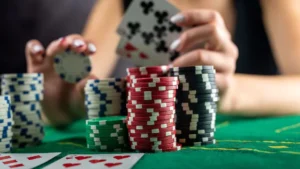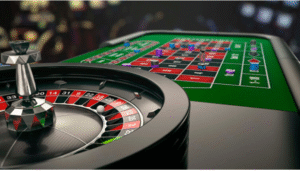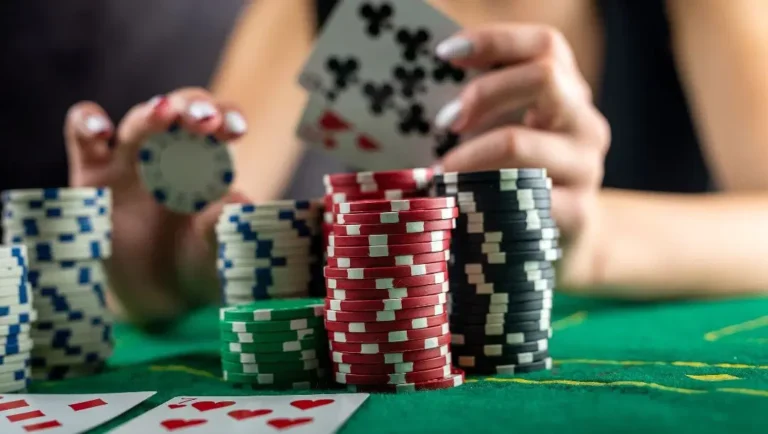Life often feels like a card game. We don’t get to choose the hand we’re dealt, but we can decide how to play it. This is why poker has always been more than a game of chance. Beyond the chips and the cards, poker is an incredible teacher of risk management, skills that can be applied in careers, relationships, and personal growth. Understanding these strategies can help us navigate uncertainty and make smarter decisions when life throws its curveballs.
The Art Of Calculated Risks
One of the most important lessons poker teaches is that not every opportunity is worth chasing. In poker, players calculate the odds before placing their bets, knowing when to fold and when to push forward. Life works the same way. Every decision, whether it’s starting a new business or changing careers, involves risk. What matters most is assessing whether the potential reward outweighs the danger. Just as a player won’t bet their entire stack on a weak hand, we shouldn’t stake everything on uncertain ventures without proper evaluation.
Interestingly, people express their personalities in how they take risks. For instance, when someone updates a cute insta dp, it’s not just a picture, it can symbolize confidence, vulnerability, or even strategic presentation of their identity. In a way, this reflects the same mindset as poker: what you show to the world and what you keep hidden is often a deliberate choice.
Emotional Discipline Under Pressure
Poker is a high-pressure environment. Winning requires the ability to control emotions, particularly when facing setbacks. This is called “tilt management” in poker, a state where players let frustration cloud their judgment. Similarly, in life, emotions can push us into decisions we regret. Managing disappointment, controlling excitement, and keeping a level head in stressful moments are vital for long-term success.
The same holds true for professionals who face constant challenges. Consider those listed in an australian lawyers directory. Lawyers, much like poker players, make high-stakes decisions daily. Their outcomes often depend not just on logic but also on how well they manage emotions and keep their composure in difficult situations.
Reading Situations And People
In poker, much of the game lies in reading others, understanding their tells, behavior, and patterns. Great players pay attention not only to the cards but to the people across the table. Life, too, demands awareness of human behavior. Whether negotiating a deal, navigating relationships, or working in teams, success often comes from knowing how to interpret signals and adjust accordingly.
This skill is especially useful in communication. Just as a poker player might bluff strategically, people sometimes express themselves through subtleties. An example is attitude shayari hindi, which can often disguise emotions with poetic flair, giving a sense of strength while masking vulnerability. Learning to read between the lines in both poker and life ensures that decisions are based on more than surface-level impressions.

Long-Term Thinking Over Short-Term Gains
A central poker principle is bankroll management—ensuring that one has enough resources to withstand losses while still staying in the game. This teaches the importance of sustainability. Short-term wins may feel satisfying, but focusing on the bigger picture guarantees longevity. In life, whether in financial planning, career choices, or relationships, it’s wiser to think long-term rather than chase instant gratification.
The same principle applies in modern business. For example, organizations that appear on a seo agency listing sydney know that search optimization is not about overnight results. It’s a gradual process that builds authority, trust, and visibility over time. Like poker, the real value lies in persistence and the discipline to stay the course despite short-term fluctuations.
Adapting To Changing Circumstances
Poker is dynamic. The strategies that work in one game might not apply in another, and players must adjust to new environments quickly. Similarly, life rarely goes as planned. Market shifts, personal circumstances, and unforeseen challenges require adaptability. The most successful individuals are those who can pivot without losing sight of their ultimate goals.
Think of tradespeople who rely on exposure through a website for tradie. Their ability to adapt to market demands, client expectations, and even digital platforms determines their long-term survival. Poker players, too, thrive on adaptability, knowing when to change strategies based on new cards, opponents, or shifting odds.
Building Resilience Through Losses
Every poker player knows that losing is inevitable. What separates the winners from the rest is their ability to bounce back. Losses provide lessons, and each failure offers an opportunity to refine strategies. Similarly, in life, setbacks are unavoidable. The key lies in using these experiences as stepping stones rather than obstacles.
When faced with failure, many successful individuals credit their resilience as the foundation of their achievements. This echoes the poker mindset: the game isn’t about avoiding losses altogether but about how well you recover and move forward.
Conclusion
Poker is more than entertainment, it’s a mirror of life’s challenges and uncertainties. From calculating risks to maintaining emotional discipline, from reading others to adapting in dynamic situations, the lessons from the poker table are universally applicable. In both poker and life, resilience, patience, and strategic thinking are the tools that transform risk into opportunity. By embracing these lessons, we learn to manage risk not with fear, but with wisdom. Poker strategies remind us that while we cannot control the hand we are dealt, we can always control how we choose to play it.


















